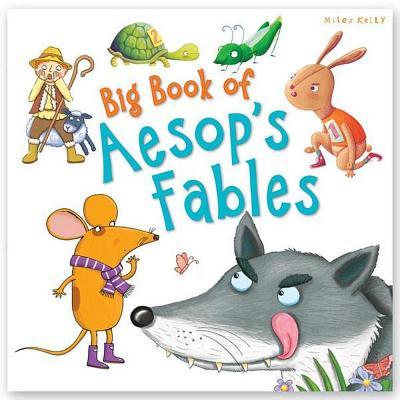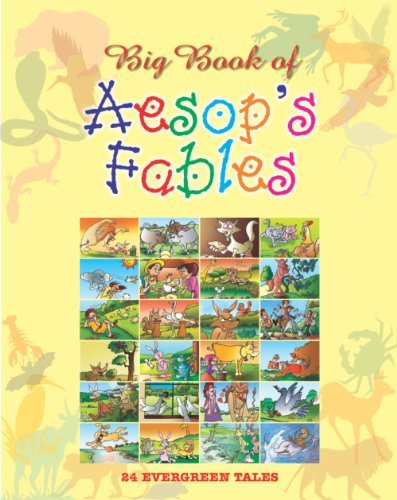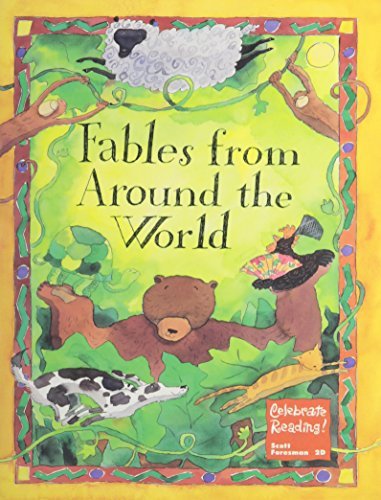


Books in series

Big Book of Aesop's Fables
2017

The Big Book of Fables
1912

The Big Book of Animal Fables
1965

Big Book Of Aesop's Fables
2012

The Big Cat Spat
2017

CR BIG BOOK FABLES FROM AROUND THE WORLD GRADE 2 UNIT D COPYRIGHT 1993 (LITTLE CELEBRATIONS GUIDED R
1997
Authors

620 BC - 564 BC Tradition considers Greek fabulist Aesop as the author of Aesop's Fables , including "The Tortoise and the Hare" and "The Fox and the Grapes." This credited ancient man told numerous now collectively known stories. None of his writings, if they ever existed, survive; despite his uncertain existence, people gathered and credited numerous tales across the centuries in many languages in a storytelling tradition that continues to this day. Generally human characteristics of animals and inanimate objects that speak and solve problems characterize many of the tales. One can find scattered details of his life in ancient sources, including Aristotle, Herodotus, and Plutarch. An ancient literary work, called The Aesop Romance tells an episodic, probably highly fictional version of his life, including the traditional description of him as a strikingly ugly slave (δοῦλος), whose cleverness acquires him freedom as an adviser to kings and city-states. Older spellings of his name included Esop(e) and Isope. A later tradition, dating from the Middle Ages, depicts Aesop as a black Ethiopian. Depictions of Aesop in popular culture over the last two and a half millennia included several works of art and his appearance as a character in numerous books, films, plays, and television programs. Abandoning the perennial image of Aesop as an ugly slave, the movie Night in Paradise (1946) cast Turhan Bey in the role, depicting Aesop as an advisor to Croesus, king; Aesop falls in love with a Persian princess, the intended bride of the king, whom Merle Oberon plays. Lamont Johnson also plays Aesop the Helene Hanff teleplay Aesop and Rhodope (1953), broadcast on hallmark hall of fame. Brazilian dramatist Guilherme Figueiredo published A raposa e as uvas ("The Fox and the Grapes"), a play in three acts about the life of Aesop, in 1953; in many countries, people performed this play, including a videotaped production in China in 2000 under the title Hu li yu pu tao or 狐狸与葡萄 . Beginning in 1959, animated shorts under the title Aesop and Son recurred as a segment in the television series Rocky and His Friends and The Bullwinkle Show, its successor. People abandoned the image of Aesop as ugly slave; Charles Ruggles voiced Aesop, a Greek citizen, who recounted for the edification of his son, Aesop Jr., who then delivered the moral in the form of an atrocious pun. In 1998, Robert Keeshan voiced him, who amounted to little more than a cameo in the episode "Hercules and the Kids" in the animated television series Hercules. In 1971, Bill Cosby played him in the television production Aesop's Fables. British playwright Peter Terson first produced the musical Aesop's Fables in 1983. In 2010, Mhlekahi Mosiea as Aesop staged the play at the Fugard theatre in Cape Town, South Africa.

"I do not write for children, but for the childlike." - George Macdonald Author and artist J.S. Davey continues to mix old school wit and whimsy with timeless words of wisdom. His "Proverbs and Parables" series, as well as his new "Fables" series, have been used in school curriculum throughout North Carolina, teaching children the importance of contentment and humility. In late 2016, J.S. Davey created his publishing imprint "Fiction Forest Books" and began partnering with a non-profit ministry in Uganda to help equip and educate orphaned children touched by aids and war. Read more about J.S. Davey's books and mission, see his artwork, and subscribe to his monthly newsletter at www.fictionforestbooks.com.